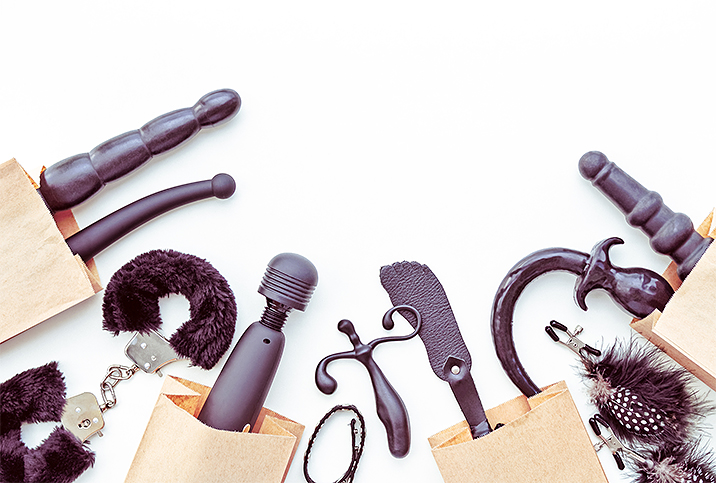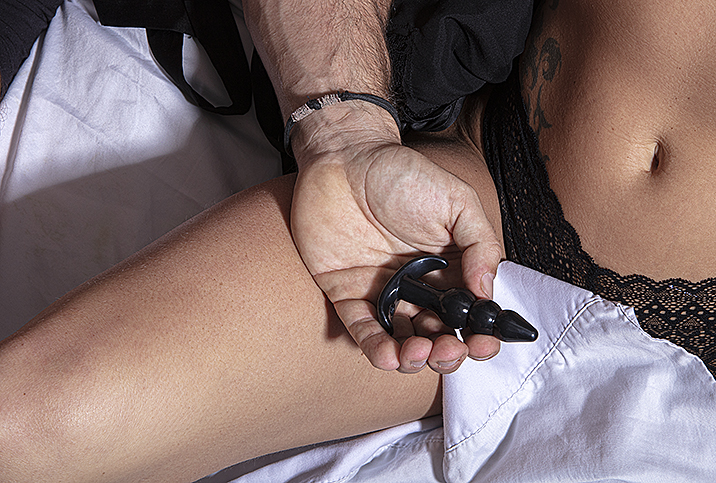How Sex Stores Stayed Alive During COVID-19

S3x, $ex, 5ex—these are just a few of the ways sex stores have to spell "sex" on social media platforms, usually Instagram, to virtually advertise to and educate customers, especially in the wake of COVID-19.
In December 2020, Instagram updated its terms of use. Because it is owned by parent company Facebook, it had to make changes to reflect Facebook's Sexual Solicitations Community Standards. Guidelines created to deter sex workers from using social media, a problem on its own, also hurt sex education workers, who now had to further disguise how they talked about sex, even so far as not being able to spell out the word.
Jacq Jones, the owner of the sex store Sugar in Baltimore, Maryland, said between everything else the company was confronting in a global pandemic, being sexually censored made their work even more difficult.
"What am I, 4?" Jones said. "It's ridiculous. We aren't doing anything [wrong by] talking about sex—it's normal and healthy."
Loss and innovation
While some sex stores reached new peaks during the pandemic, Sugar experienced an initial 90 percent loss. Their website was purely for basics before March 2020, but as their doors closed and consumers went online, Jones had to re-create her sexual-education-based shopping experience virtually.
Additionally, Jones was forced to negotiate rent with her landlord as many businesses on her street closed. Her staff's safety was a top priority: Sugar's employees consist of primarily Black and queer individuals, groups disproportionately affected by COVID-19. Staff was allowed to work from home as Sugar looked for more advertisers to help keep them afloat.
"[COVID-19] has been devastating," Jones said. "I am not entirely sure how we are still here. The internet is a great option, but it's absolutely no substitute for in-person interactions."
Visiting the store in person, shoppers can have intimate conversations with staff about sex toys, pelvic floor concerns, sexual empowerment and other sexual topics. To mimic the in-person education, Sugar took to Instagram's live feature to stream in real-time to customers. Even though Instagram and Facebook are owned by the same company, Jones feels more comfortable using Instagram to educate rather than Facebook because she fears her account will be reported or deleted.
"Instagram can be less oppressive about sex, but it is still stigmatized," she said.
Sugar has since made back most of their financial losses during COVID-19, a recovery Jones credits to their customers.
"I am just really grateful we are still here," Jones said. "We have the best customers in the world who have been incredibly supportive throughout this year."
Bridging the accessibility gap
Sex stores that had a more established web presence, like Early to Bed in Chicago, saw less financial trouble during the peak of COVID-19.
Owner Searah Deysach attributes their sustained success to a robust web strategy.
"We haven't suffered in the way many others have," she said. "I feel very grateful that this industry has been resilient."
Early to Bed had always offered in-store pickup, but upon its transition to curbside, sales increased. Daily, the store filled four to six large U.S. Postal Service bags with products to ship out. This allowed Deysach to keep her staff paid even when they were sequestered at home.
Early to Bed received more phone calls and emails asking for advice on sex toys and other products they offer, such as their gender gear, including binders, packers and gaffs. Their social media presence is fairly large, and they often interact with their followers with toy reviews, informational videos and giveaways.
Deysach said they initially moved their sex-education efforts to social media because of the lack of in-person interaction, similar to Jones, but it made her work and her employees more accessible to customers.
"So much more education is happening online, and it is much more accessible," she said. "It helps people who do not live in cities with feminist sex stores. We are seeing real innovations and more education, which is exciting for the industry."
One way or another, customers and store owners have continued and will continue to find ways to reach each other, not just to keep commerce alive but to deepen their collective understanding of sexual health, even in the unsexiest of times.


















